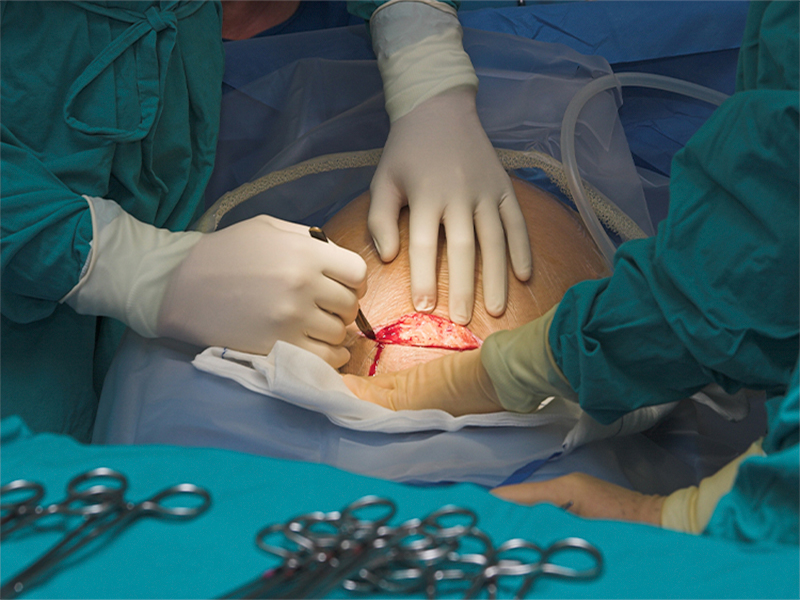Enquire Now

A Caesarean Delivery is a surgical procedure where a baby is born through an incision in the mother's abdomen and uterus.
1. Fetal Distress : Concerns about the baby's well-being.
2. Prolonged Labor : Labor that lasts longer than expected.
3. Maternal Health : Concerns about the mother's health, such as hypertension or diabetes.
4. Multiple Pregnancy : Carrying twins, triplets, or other multiples.
5. Breech Presentation : The baby is positioned feet-first or buttocks-first.
1. Emergency C-Section : Performed in response to a sudden complication.
2. Planned C-Section : Scheduled in advance, often due to a known complication.
3. Repeat C-Section : A subsequent C-section after a previous one.
1. Preparation : The mother is given anesthesia and prepared for surgery.
2. Incision : A horizontal incision is made in the abdomen, and a vertical incision is made in the uterus.
3. Delivery : The baby is carefully lifted out of the uterus.
4. Placenta Removal : The placenta is removed, and the uterus is closed.
5. Recovery : The mother is taken to the recovery room for post-operative care.
1. Infection : Risk of infection for the mother and baby.
2. Blood Loss : Risk of excessive bleeding during or after surgery.
3. Adhesions : Risk of scar tissue forming in the abdomen.
4. Respiratory Problems : Risk of respiratory issues for the baby.
1. Pain Management : Managing pain and discomfort after surgery.
2. Wound Care : Caring for the surgical incision.
3. Breastfeeding Support : Support with breastfeeding and lactation.
4. Follow-up Care : Scheduled follow-up appointments with the healthcare provider.
Enquire Now